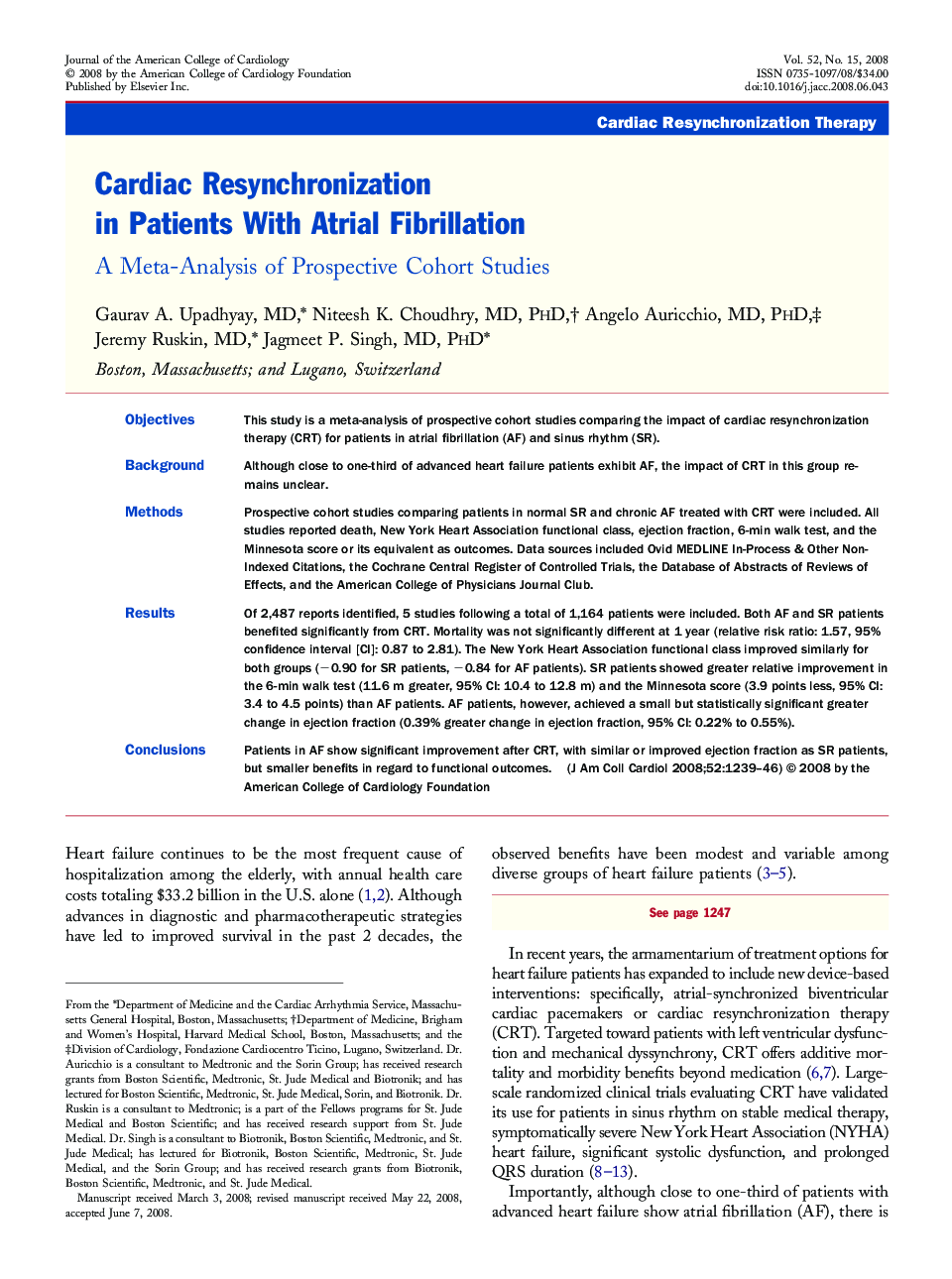| Article ID | Journal | Published Year | Pages | File Type |
|---|---|---|---|---|
| 2949725 | Journal of the American College of Cardiology | 2008 | 8 Pages |
ObjectivesThis study is a meta-analysis of prospective cohort studies comparing the impact of cardiac resynchronization therapy (CRT) for patients in atrial fibrillation (AF) and sinus rhythm (SR).BackgroundAlthough close to one-third of advanced heart failure patients exhibit AF, the impact of CRT in this group remains unclear.MethodsProspective cohort studies comparing patients in normal SR and chronic AF treated with CRT were included. All studies reported death, New York Heart Association functional class, ejection fraction, 6-min walk test, and the Minnesota score or its equivalent as outcomes. Data sources included Ovid MEDLINE In-Process & Other Non-Indexed Citations, the Cochrane Central Register of Controlled Trials, the Database of Abstracts of Reviews of Effects, and the American College of Physicians Journal Club.ResultsOf 2,487 reports identified, 5 studies following a total of 1,164 patients were included. Both AF and SR patients benefited significantly from CRT. Mortality was not significantly different at 1 year (relative risk ratio: 1.57, 95% confidence interval [CI]: 0.87 to 2.81). The New York Heart Association functional class improved similarly for both groups (−0.90 for SR patients, −0.84 for AF patients). SR patients showed greater relative improvement in the 6-min walk test (11.6 m greater, 95% CI: 10.4 to 12.8 m) and the Minnesota score (3.9 points less, 95% CI: 3.4 to 4.5 points) than AF patients. AF patients, however, achieved a small but statistically significant greater change in ejection fraction (0.39% greater change in ejection fraction, 95% CI: 0.22% to 0.55%).ConclusionsPatients in AF show significant improvement after CRT, with similar or improved ejection fraction as SR patients, but smaller benefits in regard to functional outcomes.
